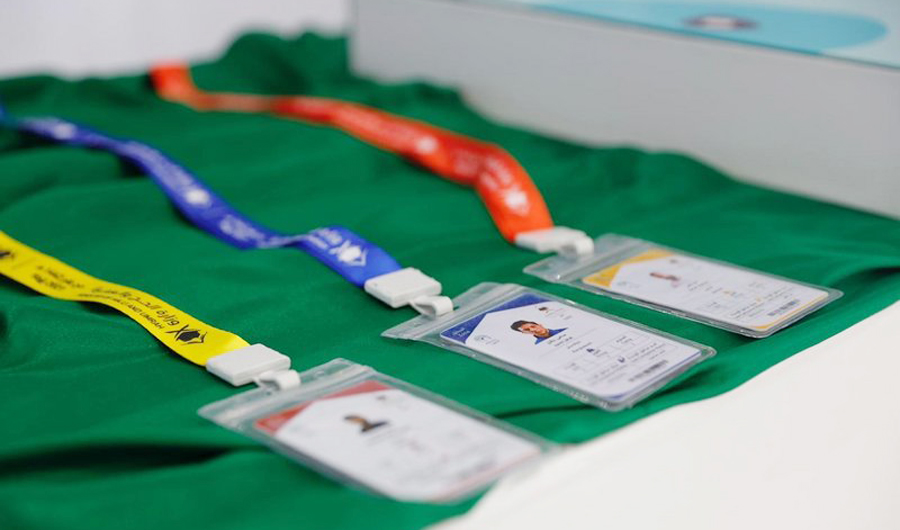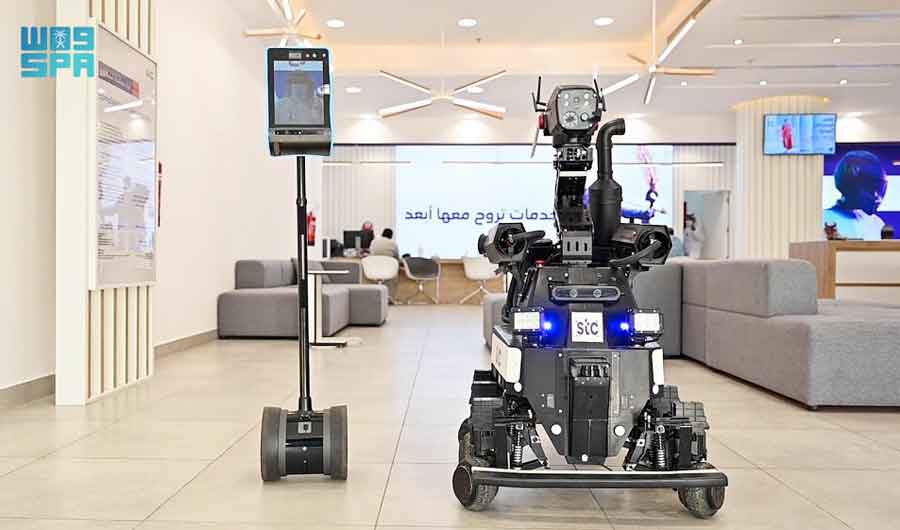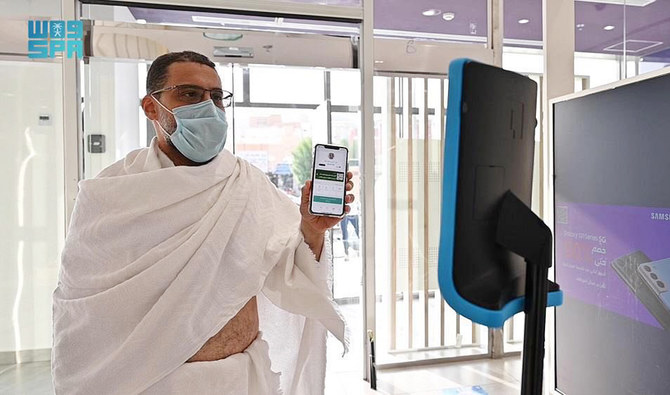MAKKAH/JEDDAH: To ensure safety during the Hajj season and to prevent the spread of the coronavirus (COVID-19), Saudi authorities are utilizing technology to help pilgrims perform their rituals in peace and comfort.
The yearly pilgrimage to Makkah is considered the world’s largest human gathering, with almost 2.5 million pilgrims in 2019. But because of the COVID-19 pandemic, this year’s Hajj is restricted to 60,000 pilgrims, all coming from within the Kingdom.
When Saudi pilgrims arrived, they had direct access to smart cards, smart bracelets, and a smart robot service — all intended to make Hajj a more convenient experience.
The features of the smart cards, introduced by the Ministry of Hajj and Umrah, include near-field communication (NFC) and barcodes that will hold personal, medical, and residence information. They will also guide pilgrims to their residences in the holy sites.
According to Hamad Al-Eshiwan, director of the media center at the Ministry of Hajj and Umrah, the smart cards were manufactured locally and were given to this year’s pilgrims and will be available for Umrah performers in the future.
“We will be also providing this technology to other international Hajj companies for future Hajj and Umrah clients,” he said.
Al-Eshiwan also said each card is color-coded as the different colors link the cardholders to their respective housing at the holy sites. They also allow access to smart doors and entrances to campsites in the holy sites.
In addition to pilgrims’ vital information, the cards also allow the pilgrims to check their pre-planned journey routes and schedules for Hajj. Through these cards, pilgrims can choose their daily meals, which will help avoid crowded places.

Built locally, smart cards are color-coded as the different colors link the cardholders to their respective housing at the holy sites. (SPA)
Explaining the need for these cards, Amr Al-Maddah, deputy minister for Hajj and Umrah Services, said the smart cards were launched to put the pilgrims’ safety and convenience as top priorities and to “enrich their experience.”
He added that pilgrims can fill out a service evaluation questionnaire of their experiences as their feedback will help improve services and meet pilgrims’ highest expectations.
The smart cards can also be linked and read through the “Sha’ir” application, which will also assist authorities in providing any requested service.
The Saudi Data and Artificial Intelligence Authority (SDAIA) launched its smart bracelet service in cooperation with the Guests of God Service Program, in partnership with the Saudi Telecom Company Group (STC).
Some 5,000 bracelets were distributed among this year’s pilgrims as the bracelet, which comes in the form of a wristwatch, is equipped with GPS and uses the data for Internet of Things (IoT) technologies.
The bracelet provides integrated services that include all personal data of a pilgrim, including his or her health status related to COVID-19.

Fully automatic robots have been deployed to sanitize Makkah’s Grand Mosque and keep it free from bacteria in the wake of the pandemic. (SPA)
Dr. Abdullah bin Sharaf Al-Ghamdi, SDAIA president, described the initiative as an important step to serve the pilgrims.
“Pilgrims wearing these bracelets can check their heartbeats and oxygen level,” Al-Ghamdi said. “They can also review their health status as these bracelets are connected with the Tawakkalna app.” Pilgrims with bracelets can report a security issue or seek assistance from their control center, which includes representatives from various health, security, and Hajj authorities.
“This center monitors everything happening to the pilgrims, whether it is a security or health issue, or even an accident,” Al-Ghamdi said. “These bracelets can also help authorities take action when needed.”
The General Presidency of the Grand Mosque and the Prophet’s Mosque launched its smart robot service last month as 10 robots joined the Grand Mosque’s disinfection team.
To help thwart the spread of COVID-19, the robots are helping in the Grand Mosque’s disinfection routine. The robots are equipped with a special program to analyze the disinfection requirements of assigned areas. They can operate between five and eight hours without human intervention.
In the 2019 Hajj season, the Ministry of Health introduced the first Hajj robot that remotely provided medical consultations and checks with the use of artificial intelligence (AI) technology.
AI assistant professor at Umm Al-Qura University, Tahani Al-Subait, told Arab News that a physician in Riyadh, for instance, can provide medical assistance through a robot to a patient in the holy sites. “The physician can remotely monitor the robot and give it an order to take the patient’s temperature and check their pulse with a stethoscope,” she said.








































